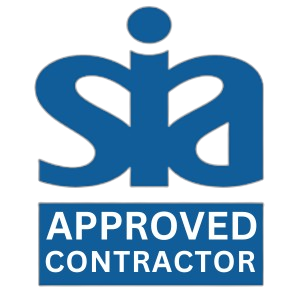The UK’s security industry plays a crucial role in protecting people, businesses, and assets. With the increasing demand for security services, it’s essential to understand how this sector is regulated to maintain safety and professionalism. In this blog, we’ll explore the regulations that govern the UK security services industry and how they ensure high standards are met.
Understanding the Role of Security Services
Security services in the UK cover a wide range of activities, from guarding premises and providing surveillance to managing access control and alarm systems. These services are vital for both businesses and individuals looking to protect their property and loved ones. However, without proper regulation, the effectiveness and reliability of security services could be compromised. This is why the UK government has put a comprehensive regulatory framework in place to ensure the highest standards.
The Regulatory Framework for Security Services
The regulation of the security services industry in the UK is primarily overseen by the Security Industry Authority (SIA). The SIA is responsible for ensuring that security personnel, including security guards, door supervisors, and CCTV operators, meet stringent training, qualification, and licensing requirements.
1. The Role of the Security Industry Authority (SIA)
The Security Industry Authority was established in 2003 as an executive agency of the Home Office. It plays a critical role in regulating the private security industry. The SIA ensures that anyone working in the security services sector is properly licensed. To obtain a licence, security personnel must pass a series of background checks and complete specific training courses related to their job roles.
The SIA licenses individuals working in areas such as:
- Security Guards: Those responsible for protecting property and individuals from theft, vandalism, or other criminal activity.
- CCTV Operators: Individuals who monitor and operate surveillance equipment to detect suspicious activities.
- Door Supervisors: Those who manage the safety of guests at venues such as pubs, clubs, and event halls.
The SIA also provides guidance and resources to security companies, ensuring they comply with all legal and ethical standards.
2. Training and Certification
Training is a cornerstone of the UK’s security services regulations. To work legally in most roles within the security industry, individuals must complete accredited training courses. The SIA’s training requirements ensure that personnel are equipped with the necessary skills and knowledge to perform their duties safely and effectively.
For example, security guards are required to undergo training in areas such as:
- Conflict management
- Emergency procedures
- Health and safety practices
- Customer service
These training courses help security professionals understand the legalities of their roles and how to deal with challenging situations in a calm and appropriate manner. This regulation ensures that individuals providing security services are not only qualified but also competent and well-prepared for their responsibilities.
3. Licensing Requirements
One of the most important aspects of regulating the security services industry in the UK is the licensing system. Security personnel must apply for a licence through the SIA, which involves criminal background checks, identity verification, and proof of relevant qualifications. The licensing system ensures that only those who meet the required standards are employed in security roles.
Licences must be renewed every few years, and any security worker found operating without a valid licence is committing a criminal offence. This licensing system helps build trust between security services providers and their clients, as it guarantees that personnel are vetted, qualified, and properly trained.
4. Compliance and Enforcement
The SIA also plays a role in enforcing compliance within the industry. It monitors security firms and workers to ensure they adhere to the required standards. If a security service provider fails to comply with these regulations, the SIA can impose penalties, including fines or the suspension of licences.
The SIA works alongside other regulatory bodies, including local authorities and the police, to investigate any complaints or concerns about the conduct of security personnel. If a security worker is found to be acting inappropriately, they can face disciplinary action, including the revocation of their licence.
The Importance of Regulation for Security Services
The regulation of security services in the UK is vital for several reasons:
- Safety and Security: By ensuring that all security personnel are properly trained and licensed, regulations help to maintain a high level of safety for individuals and businesses.
- Trust and Confidence: Clients can have peace of mind knowing that security personnel are vetted and qualified to carry out their duties.
- Industry Professionalism: Regulations help raise the standards of the security services industry, making it more professional and reputable.
- Crime Prevention: Properly trained security professionals are better equipped to prevent and respond to criminal activities, helping to reduce crime rates.
Conclusion
In summary, the UK’s security services industry is regulated through a combination of licensing, training, and compliance checks. The Security Industry Authority plays a vital role in ensuring that all security personnel meet strict standards, helping to maintain trust, safety, and professionalism across the sector. By adhering to these regulations, security services in the UK can continue to provide reliable and effective protection for people and property.
If you’re looking for trusted security services, it’s essential to choose providers that comply with these regulations, ensuring you receive the highest level of protection.




